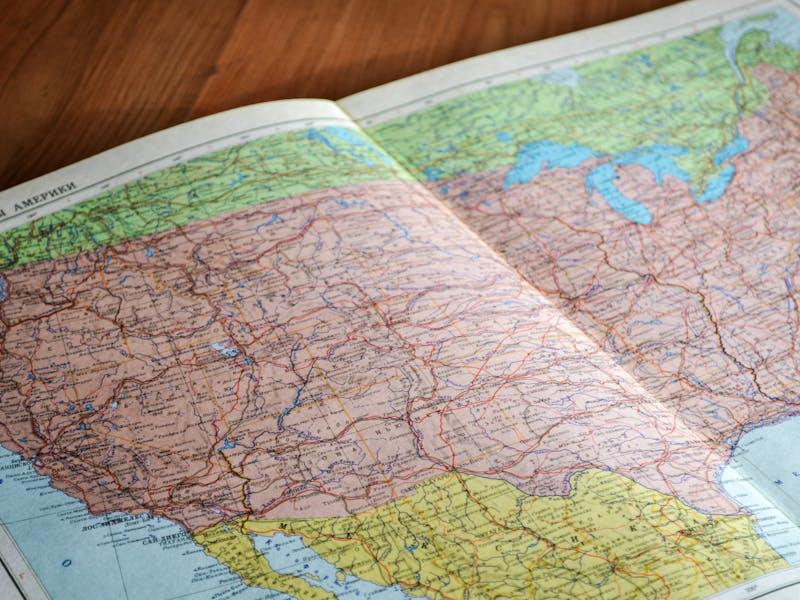
As more people work remotely and business is primarily conducted online, you may be considering expanding your work to other states or even moving to a new location, especially if you want to expand your career or serve clients in other states. As a CPA, this may be more challenging because your license is issued by individual states, so the state boards have the right to recognize your license or request you meet additional requirements.
We understand this is confusing, so we’re breaking down what both CPA reciprocity and CPA mobility are as well as what states recognize both interstate and international licenses.
Understanding CPA mobility
CPA mobility allows a licensed CPA from one state to practice in another state. Typically, this only refers to practicing temporarily or in a limited capacity, rather than if you are moving to a new state and want to practice there. In the dynamic field of accounting, mobility is not just a convenience—it is often crucial for career growth and client satisfaction.
However, taking your CPA certificate out of state is not a one-size-fits-all scenario. Your home state certification may hold varying degrees of power depending on where you're practicing. Most states have adopted mobility laws that support CPAs working across state lines, provided they have a good-standing license from their home state and adhere to the scope of practice permitted in the state they're offering services in. Check with NASBA’s CPA mobility tracker1 to see if it applies to you.
Understanding CPA reciprocity
CPA reciprocity is the cornerstone of interstate and international accounting practice. It allows CPAs to be recognized for their qualifications in various jurisdictions without the hassle of requalifying through rigorous state-specific examinations or fulfilling vastly different educational requirements.
Most states do offer CPA reciprocity if you have passed the CPA Exam, meet specific experience requirements, and hold a valid license, though you do have to apply, gain approval from the state board, and pay a fee.
Some states have more stringent requirements, possibly asking for an ethics exam, additional education, or specific experience credentials. If you’re planning to move or seek a reciprocal license, it’s important to check with the state board to find out exactly what you need.
What states recognize CPA reciprocity?
All states except Hawaii and New Hampshire offer instate reciprocity, though Massachusetts is limited.
This reciprocity unlocks more opportunities for CPAs. It ensures you can apply your knowledge and expertise to help foster a culture of shared knowledge and mutual growth, and it also aids in securing a professional pipeline that is growing less stable as more existing CPAs retire.
Applying for a reciprocal CPA license
While every state is different, the steps to apply for a reciprocal license generally involve paying a fee, filling out an application, and providing the following items to the state’s Board of Accountancy:
- Proof that you passed the CPA Exam
- Proof of meeting the state’s experience requirements
- Official transcripts sent directly from your college or university
- Passport-style photograph and an official copy of a driver’s license or other state-issued form of identification
- Proof of passing an ethics exam or completing a course
- Character references
Again, it’s very important you check with the jurisdiction prior to applying.
Going Global with CPA Reciprocity
In our increasingly globalized economy, you may want to practice internationally. Some countries have mutual recognition agreements (MRAs) with the American Institute of Certified Public Accountants (AICPA) and NASBA. Such agreements often streamline the process of working as a CPA abroad by linking the CPA licensure in the United States with foreign professional accounting designations.
Knowledge Is Power
Understanding and leveraging CPA reciprocity expands your professional canvas, allowing you to make strategic moves propelled by clarity and confidence. Remember, though, that changes in the regulatory environment can occur, meaning the landscape you traverse today might look different tomorrow. It is paramount for CPAs to stay well-informed with the developments within the states they're considering or international regions they aim to serve.
Consider CPE when thinking of CPA reciprocity
No matter which state you practice in, you’ll need to maintain your license with CPE. Be sure to check the state CPE requirements before you move to a new state. Becker has over 1,700 CPE courses, including state-specific classes to help you meet your requirements. See why more CPAs are choosing Becker and start earning hours with a free CPE course!









